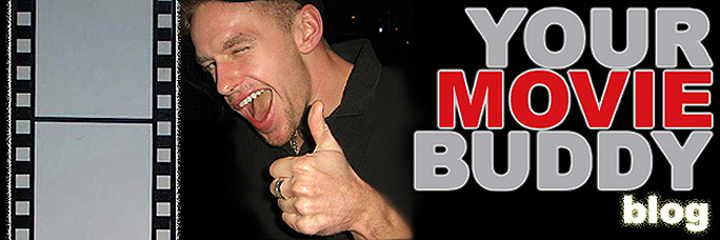AMC roped in millions of viewers with The Killing, a well-acted, if wildly uneven, crime series whose success largely hinged on its being a whodunit. It then proceeded to wrap Season 1...without revealing whodunit. Does general quality trump disappointment? Was the whole thing a wash? And is it even worth coming back?
By R. Kurt Osenlund
Think of your favorite police procedural. Surely, your thoughts involve the basics: A life is taken. A body is found. A toe is tagged. Somebody cries. A pair of cool detectives share theories in pithy, one-liner form. A case is opened. An autopsy is illustrated via gaudy visual effects. A chase ensues. A killer is caught. A case is closed.
Within this framework, there's often little room for actual humanity, for the true and devastating ramifications of a single death. It's more about the whiz-bang efficiency of the cops, the righteous and briskly-edited pursuit of justice, and the assurance that all is bagged and cinched by the end of the hour (at which time you probably won't even remember the victim's name). From the outset, AMC's The Killing was to be the antithesis of this lean and easy formula, a murder-mystery series that follows a death's ripple effect ring by ring, instead of just rushing to calm the waters. Even the show's tagline, “Who killed Rosie Larsen?” serves to exalt the deceased rather than just relegate her to a morgue drawer. Focusing on the dismal grief of the family, the arduous efforts of police, and even an offshoot of scandal that reached the heights of political power, this decidedly unglamorous noir set itself up as a hard-boiled deliverer of an oft-sentimentalized message: Time is precious. Life is precious. Let's really talk about what happens when it's gone. Let's leave that case open for a while and see what we find.
From there, the series that was initially hailed as the fourth major triumph for AMC (the venerable network that also scored with Mad Men, Breaking Bad and The Walking Dead) embarked along a path as hilly as a heart monitor, hitting peaks and valleys with an odd, almost adamant frequency. It took off, of course, on a high note, emerging as a dark and brooding drama with the kind of gritty acting and narrative minimalism that the small screen tends to shun. Set in rainy Seattle, it introduced a bounty of flawed, makeup-free characters, not a one of them altogether likable. Sarah Linden (Mireille Enos) is the lead homicide detective with commitment issues, serious parental shortcomings, crippling professional skeletons and a penchant for non-expression. Stephen Holder (Joel Kinnaman) is Linden's brash, bad-cop partner, a recovering addict whose air of unprofessionalism is topped off by his white-boy Ebonics. Darren Richmond (Billy Campbell) is the pretty-boy mayoral candidate whose sunken campaign car contained young Rosie's corpse, and whose white-knight innocence has “other shoe will drop” written all over it. Stan and Mitch Larsen (Brent Sexton and Michelle Forbes) are Rosie's crumbled parents, the former a burly rage case with mafia ties and the latter a visually unbound depressive with Lady Macbeth tendencies. The list goes on.
Beyond grounding the show in a gloomy reality, the decision to make each character at least moderately contemptible or dubious is, of course, an effective measure to ensure that everyone is suspect. And, for a time, the show predominantly succeeded at eschewing ham-handedness with its presentation of an environment that's brewing with uncertainty. I've written before that devotion to a TV series can be tough business for someone often occupied by work. Choosiness is especially necessary. But I was grabbed by The Killing, more so than any scripted show I've recently come across. It read as more arthouse film than cable program, and exuded the worldly panache it inherited from its Danish inspiration, Forbrydelsen (The Crime). It had naturalistic performances that actually seemed award-worthy, not those go-to turns that simply wind up filling categories. And it seemed to have refreshingly little interest in conforming to TV traditions, or pandering to audiences content with mediocrity. It was just about stellar. For a while.
Developed by Veena Sud, The Killing quickly established its talent for cliffhangers, and for packing its deliberately-paced hours with scores of prickly red herrings (Did Rosie's classmate rape her in the high school basement? Did the Larsens' creepy, infantile hired hand kill her in a pedophilic frenzy? Is Linden's extraneous, far-away fiancé somehow involved? Tune in next week!). The show was even able to maintain much of its teasing, bubbling interest as it rolled out its most troubling thread, the extended, unapologetically racist investigation into Islamic schoolteacher Bennett Ahmed (Brandon Jay McLaren), essentially the only person of color in the entire cast. But, for me, those storm clouds over Seattle didn't truly begin to roll in until around mid-season, with style suffering more than story. It was my running theory that the show had lost its early-episode writers, downgrading to a pack of scribes from one of those other cop shows. Dialogue hit a decline. Developments lacked punch. Banality set in. It was less an instance of the novel becoming familiar as it was the show failing to mask a lack of assuredness.
| For a show so dark, aren't these stills awfully bright? |
| You've got to be kidding me. |
Suffice it to say, I won't be back, nor will I be devoting much more thought to all this, short of finally reading about who actually dunit. After all, time is precious. Life is precious. And The Killing is a series that killed itself.


1 comment:
I definitely get where you're coming from in relation to them leaving the cliffhanger about Rosie's death but for me it hardly spoils the show because THE KILLING has never really been about Rosie's killer and more about a characters study. The finale has its issues, but it doesn't make everything that came before worthless to me.
Post a Comment